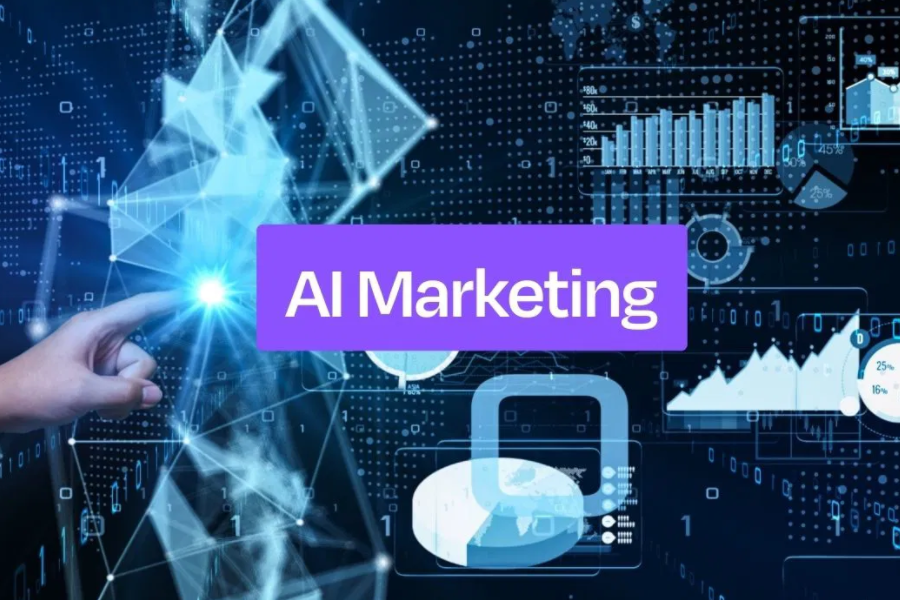Marketing today is a juggling act. Between crafting engaging social media posts, optimizing SEO, analyzing data, and keeping up with ever-changing trends, it’s easy to feel overwhelmed. What if you could automate the tedious tasks, get sharper insights in seconds, and finally focus on creativity? That’s where the best AI marketing tools come in.
These tools aren’t just hype—they’re transforming how marketers work. Whether you’re a solopreneur, a small business owner, or part of a large agency, AI-powered solutions can help you work smarter, not harder.
In this guide, we’ll explore the 8 best AI marketing tools available today, how they work, and why they’re essential for staying competitive.
What is an AI Marketing Tool
Forget the sci-fi movie image of a robot taking over your job. An AI marketing tool is more like a highly trained, super-efficient assistant that learns and adapts as it goes.
At its core, it uses smart technology like machine learning (a computer that gets better at tasks the more it does them), natural language processing (so it can understand and generate human-like text), and sentiment analysis (it can tell if a customer review is positive, negative, or neutral).
Simply put, these tools don’t just do tasks; they enhance them. They automate the boring stuff (think manual data entry), help you predict what your customers might do next (allowing you to craft more personalized campaigns), and even help you create content that truly resonates.
They’re not here to replace your marketing team, but to act as a powerful extension of it—handling the grunt work so you can focus on the strategic, creative, and fun parts of your job.
8 Best AI Marketing Tools to Elevate Your Strategy
1. ChatGPT
ChatGPT is one of the most versatile AI marketing tools available. Need a blog outline, social media captions, or even a full email campaign?
ChatGPT can generate high-quality drafts in seconds. The latest GPT-4 model offers deeper reasoning, making it ideal for strategy brainstorming and conversion-focused copy.
Best for: Content creation, ad copy, brainstorming
Related Reading: How to Use ChatGPT to Write Emails?
2. Bardeen AI
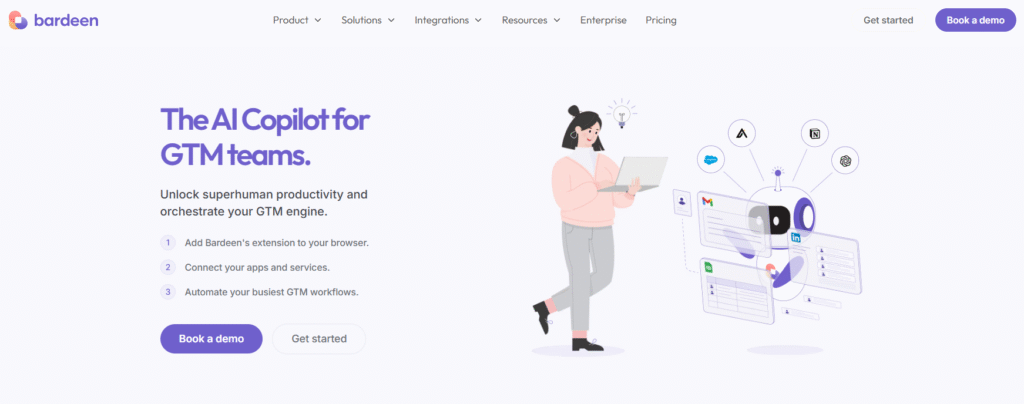
If repetitive tasks eat up your time, Bardeen AI is a lifesaver. It automates workflows across CRMs, email marketing, and social media, saving hours every week. Set up custom “playbooks” to auto-update lead lists, schedule posts, or even scrape competitor data—all without lifting a finger.
Best for: Workflow automation, lead management
3. DALL·E 3
Stunning visuals are key to engagement, but not everyone has design skills. DALL·E 3 turns text prompts into unique images, perfect for social media, ads, and blogs. No more generic stock photos—just type your idea (e.g., “a futuristic tech product mockup”) and let AI do the rest.
Best for: Social media graphics, ad creatives
4. Surfer SEO
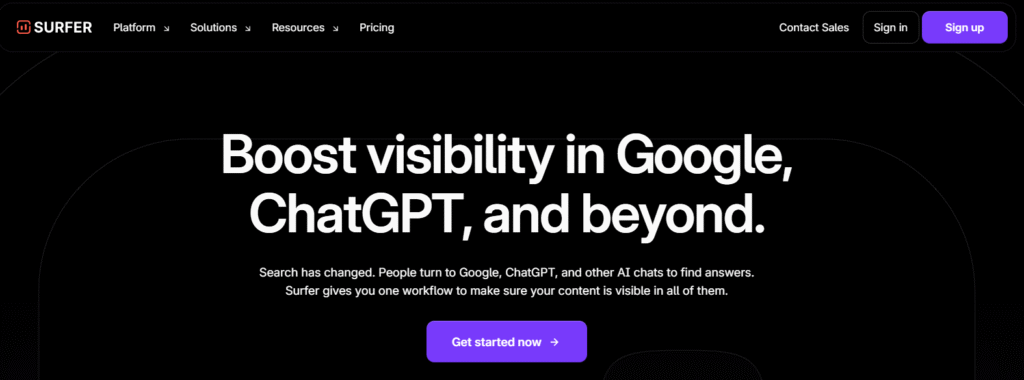
Great content means nothing if it doesn’t rank. Surfer SEO analyzes top-ranking pages and gives real-time optimization tips, from keyword density to ideal content length. Its AI-powered editor helps you tweak drafts until they’re SEO-perfect.
Best for: On-page SEO, content optimization
5. SocialPilot
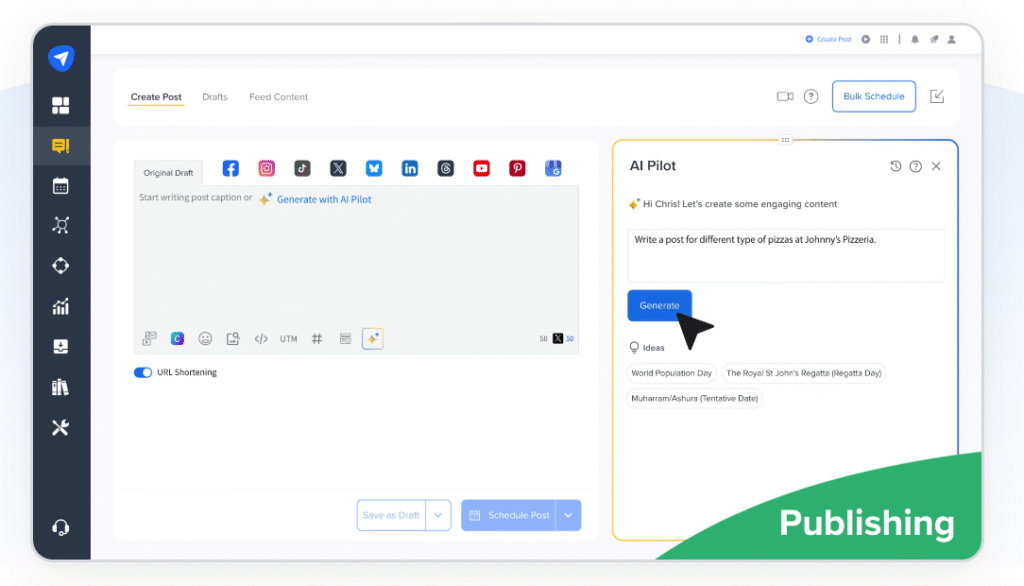
Managing multiple platforms? SocialPilot schedules, analyzes, and optimizes posts across all channels. Its AI suggests post ideas, refines captions, and even generates performance reports—so you can focus on engagement instead of logistics.
Best for: Social media scheduling, analytics
6. Salesforce
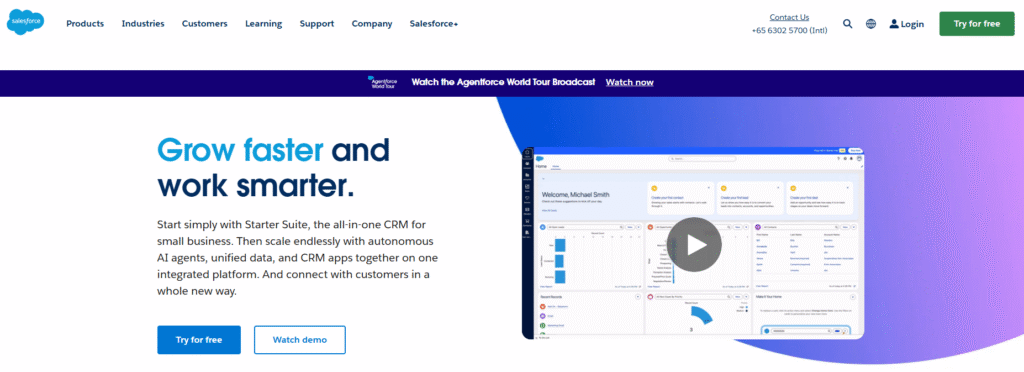
CRMs have been around for a while, but Salesforce takes things to the next level with its AI-powered Salesforce Einstein. This feature uses machine learning to analyze your customer data and uncover insights you might otherwise miss. For example, it can predict which customers are at risk of leaving, allowing you to proactively reach out, or identify which leads are most likely to convert so you can focus your efforts.
Best for: Customer segmentation, predictive analytics
7. Loomly
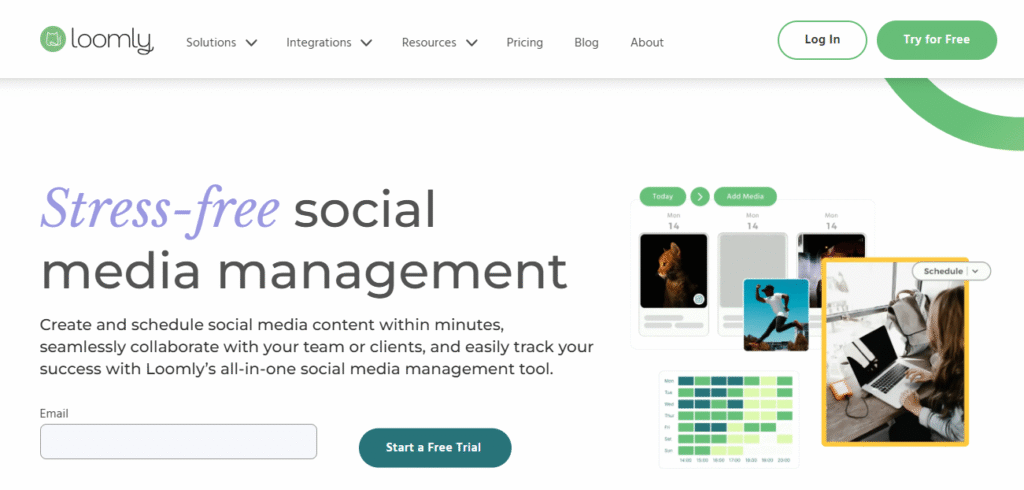
Timely, relevant posts keep your brand top-of-mind. Loomly tracks trends, suggests post ideas, and organizes content in a visual calendar. Its collaboration features make team coordination seamless.
Best for: Content planning, trend-based marketing
8. InVideo AI
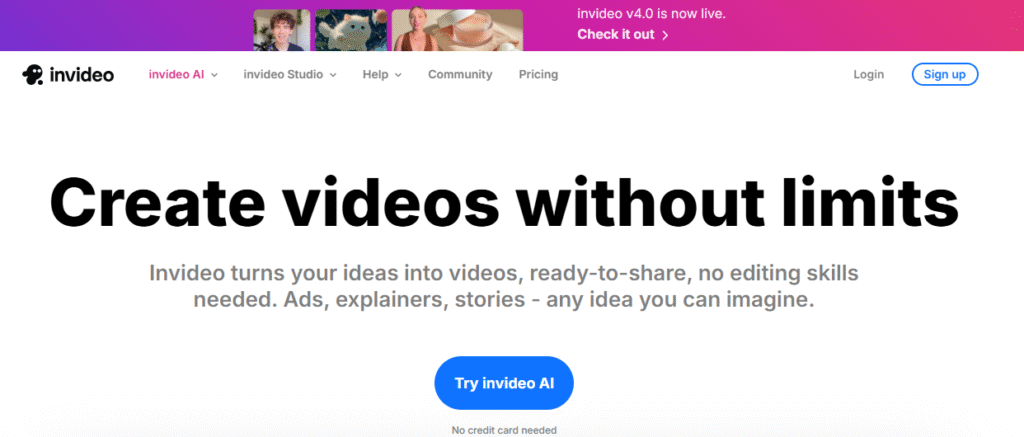
Video is essential for modern marketing, but creating professional-looking content can be intimidating. InVideo AI changes that, allowing you to turn a text script into a polished video in a matter of minutes.
Simply paste your script (for a product demo or a how-to guide, for example), and the AI automatically selects the best visuals, music, and transitions to match. You can customize fonts and branding, but the heavy lifting is done for you.
Best for: Video marketing, social media ads
Benefits of Using AI Tools for Marketing
Still unsure if AI is worth it? Here’s why the best AI marketing tools are non-negotiable in 2024:
1. Save Time & Boost Productivity
AI automates repetitive tasks like data entry, scheduling, and reporting, freeing up hours for strategy and creativity.
2. Improve Consistency & Accuracy
No more human errors—AI ensures posts go live on time, content is optimized, and data is error-free.
3. Personalize at Scale
AI analyzes customer behavior to deliver hyper-targeted ads, emails, and recommendations, increasing conversions.
4. Stay Ahead of Competitors
Early adopters of AI gain a competitive edge—just like those who embraced SEO and social media early.
Conclusion on Best AI Marketing Tools
The best AI marketing tools aren’t just a luxury—they’re a necessity. From content creation to automation and analytics, AI helps you work faster, smarter, and more effectively.
Ready to upgrade your strategy? Start with one or two tools (like ChatGPT for content or Surfer SEO for optimization) and scale from there. The future of marketing is here—will you be part of it?
